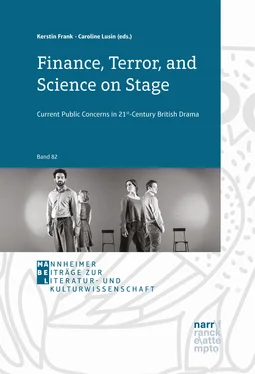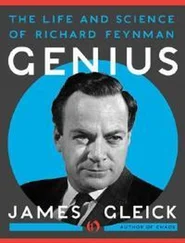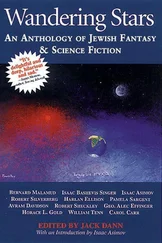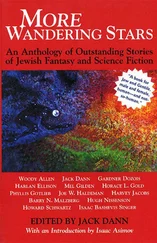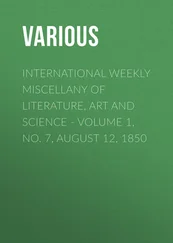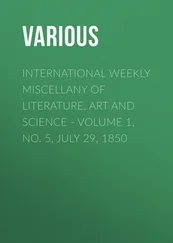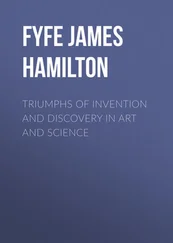Finance, Terror, and Science on Stage
Здесь есть возможность читать онлайн «Finance, Terror, and Science on Stage» — ознакомительный отрывок электронной книги совершенно бесплатно, а после прочтения отрывка купить полную версию. В некоторых случаях можно слушать аудио, скачать через торрент в формате fb2 и присутствует краткое содержание. Жанр: unrecognised, на английском языке. Описание произведения, (предисловие) а так же отзывы посетителей доступны на портале библиотеки ЛибКат.
- Название:Finance, Terror, and Science on Stage
- Автор:
- Жанр:
- Год:неизвестен
- ISBN:нет данных
- Рейтинг книги:5 / 5. Голосов: 1
-
Избранное:Добавить в избранное
- Отзывы:
-
Ваша оценка:
- 100
- 1
- 2
- 3
- 4
- 5
Finance, Terror, and Science on Stage: краткое содержание, описание и аннотация
Предлагаем к чтению аннотацию, описание, краткое содержание или предисловие (зависит от того, что написал сам автор книги «Finance, Terror, and Science on Stage»). Если вы не нашли необходимую информацию о книге — напишите в комментариях, мы постараемся отыскать её.
Finance, Terror, and Science on Stage — читать онлайн ознакомительный отрывок
Ниже представлен текст книги, разбитый по страницам. Система сохранения места последней прочитанной страницы, позволяет с удобством читать онлайн бесплатно книгу «Finance, Terror, and Science on Stage», без необходимости каждый раз заново искать на чём Вы остановились. Поставьте закладку, и сможете в любой момент перейти на страницу, на которой закончили чтение.
Интервал:
Закладка:
Bowman, Deborah. “Arts Review: 13.” Times Higher Education . 3 November 2011. https://www.timeshighereducation.com/features/culture/arts-review-13/418011.article. Accessed on 29 March 2017.
Brennan, Clara, David Greig, Dennis Kelly, Lucy Kirkwood, Laura Thomas, Anders Lustgarten, Jack Thorne and Mark Ravenhill. Theatre Uncut: The Anthology: A Response to the Countrywide Spending Cuts. London: Oberon, 2011.
Clarke, Harold D., Peter Kellner, Marianne Stewart, Joe Twyman, and Paul Whiteley. Austerity and the Political Choice in Britain. Basingstoke: Palgrave Macmillan, 2016.
Clement, Matt. “The Urban Outcasts of the British City.” Class Inequality in Austerity Britain: Power, Difference and Suffering. Eds. Will Atkinson, Steven Roberts and Mike Savage. Basingstoke: Palgrave Macmillan, 2012. 111–27.
Edgar, David. “Secret Lives.” The Guardian . 19 April 2003. https://www.theguardian.com/stage/2003/apr/19/theatre.artsfeatures. Accessed on 29 March 2017.
Edge, Simon. “13, National Theatre, London.” Express. 28 October 2011.
http://www.express.co.uk/entertainment/theatre/280257/13-National-Theatre-London-review. Accessed on 29 March 2017.
Eldridge, David. “Massive Attack.” The Guardian . 27 June 2005. https://www.theguardian.com/stage/2005/jun/27/theatre. Accessed on 29 March 2017.
Esslin, Martin. The Theatre of the Absurd . London: Penguin, 1991 [1961].
Fairclough, Norman. New Labour, New Language? London: Routledge, 2003.
Farnsworth, Kevin and Zoë Irving. “Social Policy in the Age of Austerity.” Social Policy in Times of Austerity: Global Economic Crisis and the New Politics of Welfare. Eds. Kevin Farnsworth and Zoë Irving. Bristol: Policy Press, 2015. 1–8.
—. “Austerity: More than the Sum of its Parts.” Social Policy in Times of Austerity: Global Economic Crisis and the New Politics of Welfare. Eds. Kevin Farnsworth and Zoë Irving. Bristol: Policy Press, 2015. 9–41.
Harvie, Jen. Fair Play: Art, Performance, and Neoliberalism . Basingstoke: Palgrave Macmillan, 2013.
Haydon, Andrew. “Theatre in the 2000s.” Modern British Playwriting 2000–2009 . Ed. Dan Rebellato. London: Bloomsbury Methuen Drama, 2013. 40–96.
Hoby, Hermione. “Most Theatre is Still Really Bad.” The Guardian . 8 November 2009. https://www.theguardian.com/culture/2009/nov/08/mike-bartlett-royal-court-cock. Accessed on 29 March 2017.
Kritzer, Amelia Howe. Political Theatre in Post-Thatcher Britain: New Writing: 1995–2005 . Basingstoke: Palgrave Macmillan, 2008.
McGinn, Caroline. “Mike Bartlett’s 13.” Time Out London . 17 October 2011. https://www.timeout.com/london/theatre/mike-bartletts-13. Accessed on 29 March 2017.
McKenzie, Lisa. Getting By: Estates, Class and Culture in Austerity Britain. Bristol: Policy Press, 2015.
Megson, Chris. “Beyond Belief: British Theatre and the ‘Re-Enchantment of the World’.” Twenty First Century Drama. Eds. Sian Adiseshiah and Louise Lepage. Basingstoke: Palgrave Macmillan, 2016. 37–57.
Middeke, Martin, Peter Paul Schnierer, and Aleks Sierz. “Introduction.” The Methuen Drama Guide to Contemporary British Playwrights . Eds. Martin Middeke, Peter P. Schnierer, and Aleks Sierz. London: Methuen Drama, 2011. vii-xxiv.
Orr, Jake. “Review: 13.” A Younger Theatre . 26 October 2011. https://www.ayoungertheatre.com/review-13-national-theatre-mike-bartlett/. Accessed on 29 March 2017.
O’Thomas, Mark. “Translating Austerity: Theatrical Responses to the Financial Crisis.” Twenty First Century Drama. Eds. Sian Adiseshiah and Louise Lepage. Basingstoke: Palgrave Macmillan, 2016. 129–48.
Patterson, Michael. Strategies of Political Theatre: Post-War British Playwrights. Cambridge: Cambridge UP, 2003.
Rebellato, Dan. “Exit the Author.” Contemporary British Theatre: Breaking New Ground. Ed. Vicky Angelaki. Basingstoke: Palgrave Macmillan, 2013. 9–31.
Saunders, Graham. “Introduction.” Cool Britannia? British Political Drama in the 1990s. Eds. Rebecca D’Monté and Graham Saunders. Basingstoke: Palgrave Macmillan, 2008. 1–19.
Shuttleworth, Ian. “13, National Theatre (Olivier), London.” Financial Times . 30 October 2011. https://www.ft.com/content/c7708cee-ffe7-11e0-ba79-00144feabdc0. Accessed on 29 March 2017.
Sierz, Aleks. “13, National Theatre.” The Art Desk . 25 October 2011. http://www.theartsdesk.com/theatre/13-national-theatre. Accessed on 29 March 2017.
Spencer, Charles. “13, National Theatre, Review.” The Telegraph . 26 October 2011. http://www.telegraph.co.uk/culture/theatre/theatre-reviews/8848998/13-National-Theatre-review.html. Accessed on 29 March 2017.
Taylor, Paul. “13, National Theatre: Olivier, London.“ The Independent . 27 October 2011. http://www.independent.co.uk/arts-entertainment/theatre-dance/reviews/13-national-theatre-olivier-london-2376736.html. Accessed on 29 March 2017.
Thatcher, Margaret. “The Renewal of Britain.” Conservative Political Centre Summer School. Trinity College Cambridge. 6 July 1979.
Trueman, Matt. “Review: 13 National Theatre.” Matttrueman . 26 October 2011. http://matttrueman.co.uk/2011/10/review-13-national-theatre.html. Accessed on 29 March 2017.
Tönnies, Merle. “‘New Lingo – New Theatre?’ New Labour’s Rhetoric and Political Drama in Contemporary Britain.” anglistik & englischunterricht 65 (2003): 169–91.
—. “The Immobility of Power in British Political Theatre after 2000: Absurdist Dystopias.” JCDE 5.1. (2017): 156–72.
Zeißler, Elena. Dunkle Welten: Die Dystopie auf dem Weg ins 21. Jahrhundert . Marburg: Tectum Verlag, 2008.
Immigration as Farce: Richard Bean’s England People Very Nice (2009)
Peter Paul Schnierer
1. Immigration in Contemporary British Discourse
The challenges and opportunities offered by large-scale immigration are central to Britain’s political discourse in the 21 stcentury. At the time of writing, the coming departure of the United Kingdom from the European Union (‘Brexit’) is dominating the headlines; the process was triggered by, among a range of lesser grievances, a combination of dissatisfaction and hope: dissatisfaction with the perceived loss of control of who enters the country and for how long, and the hope of better times to return once unregulated immigration, from European countries as well as from further abroad, were stopped. The arguments traded between the increasingly entrenched camps do not contain much that is new: in fact, the popular sentiment that led to the narrow victory of the Brexiteers has not changed substantially since 1980, when the punk group The Clash sang
They say the immigrants steal the hubcaps
Of respected gentlemen
They say it would be wine and roses
If England were for Englishmen again (“Something about England”)
Britain, like any other country, has her share of xenophobes and welcoming citizens alike, but the political discourse contains a few elements that are less pronounced elsewhere. The most fundamental of these is the constant influence of Britain’s insular position; there is no need to negotiate joint problems on a daily basis; no roadworks need to be coordinated, no rules for police in hot pursuit across the border have to be set up. What is more: the petty border traffic that generates so much awareness of neighbourhood and similarity in mainland Europe simply does not exist. The border between Northern Ireland and the Republic could have served as an example, and there is much greater fluidity of movement nowadays, but the border is still too burdened down with memories of recent conflict. Most other trips abroad require sea travel or flights, and the one exception, the channel tunnel opened in 1994, only came into being after decades of warnings about the invasion of Britain by French rats and rabid dogs – a fear that is best understood in terms of unwanted immigration and which was seen abroad to embody “British paranoia” (Ipsen). It is easier to cast ‘Johnny Foreigner’ as a dangerous or ludicrous character if you do not regularly get the chance to observe him at home. As a result, using national stereotypes in politics, entertainment and other public discourses requires the speaker to set irony markers, but not to apologise up front or afterwards. Often it is enough to identify the genre to make the cliché acceptable: TV comedy is a good example. A show like ‘Allo ‘Allo! (1982–92), set in Nazi-occupied France and employing excruciatingly predictable behaviour patterns for comic effect, may well have attained cult status for that very reason. One of the bestselling books of 2015 was Stephen Clarke’s semi-ironically patriotic history of Anglo-French relations entitled 1000 Years of Annoying the French .
Читать дальшеИнтервал:
Закладка:
Похожие книги на «Finance, Terror, and Science on Stage»
Представляем Вашему вниманию похожие книги на «Finance, Terror, and Science on Stage» списком для выбора. Мы отобрали схожую по названию и смыслу литературу в надежде предоставить читателям больше вариантов отыскать новые, интересные, ещё непрочитанные произведения.
Обсуждение, отзывы о книге «Finance, Terror, and Science on Stage» и просто собственные мнения читателей. Оставьте ваши комментарии, напишите, что Вы думаете о произведении, его смысле или главных героях. Укажите что конкретно понравилось, а что нет, и почему Вы так считаете.
